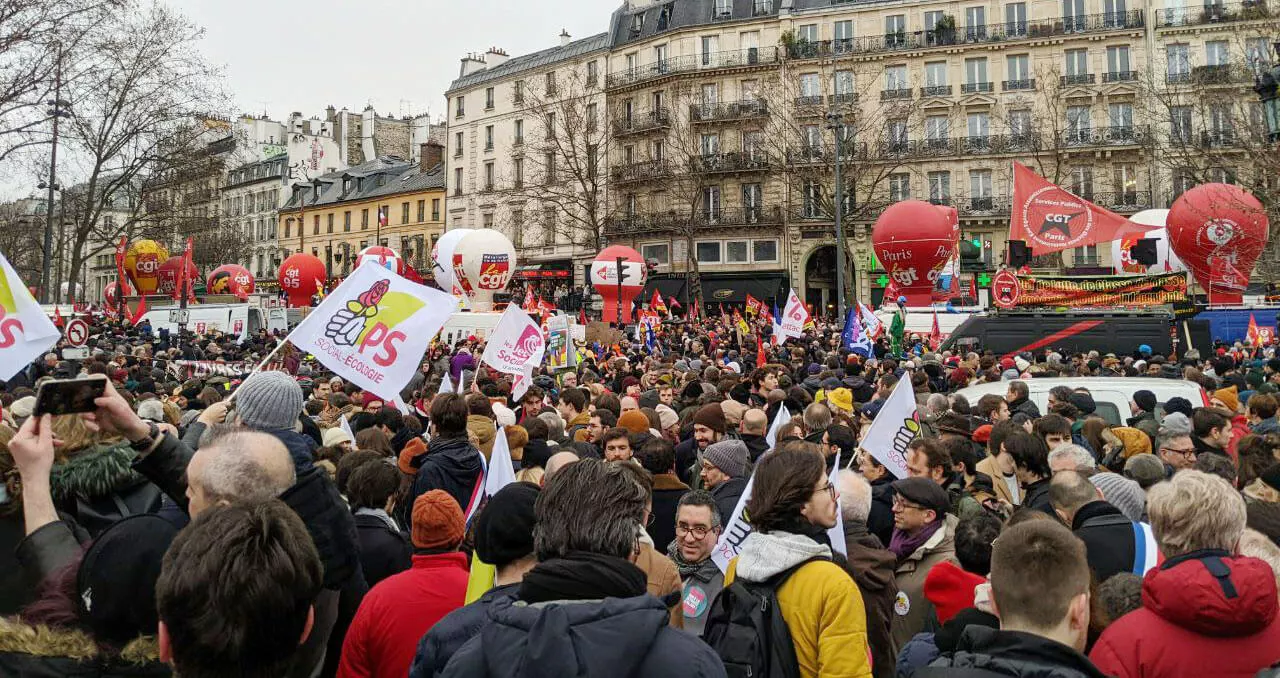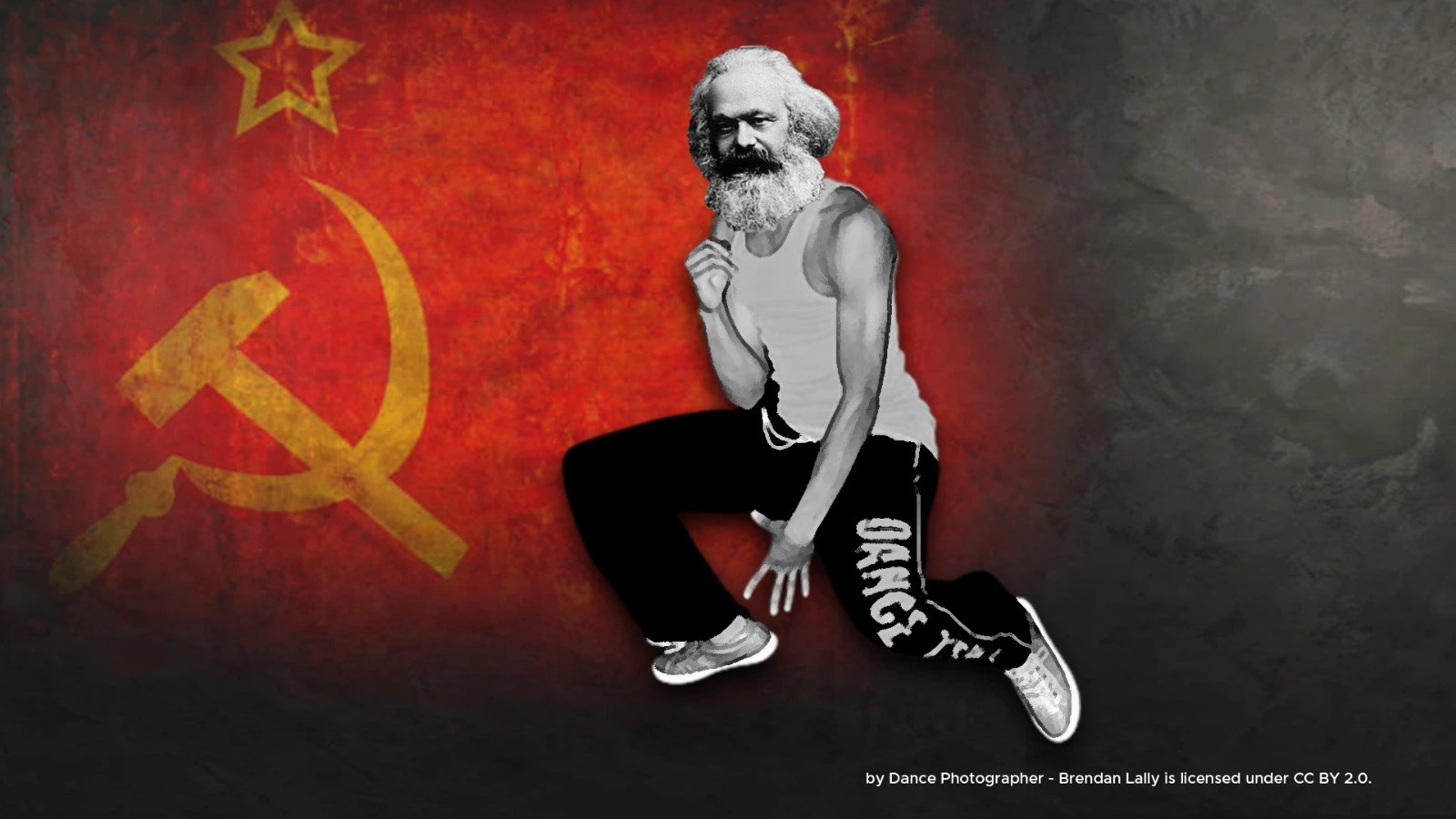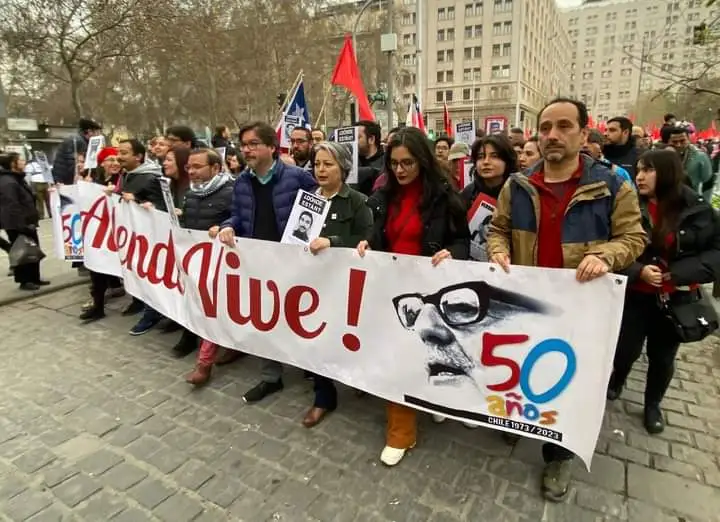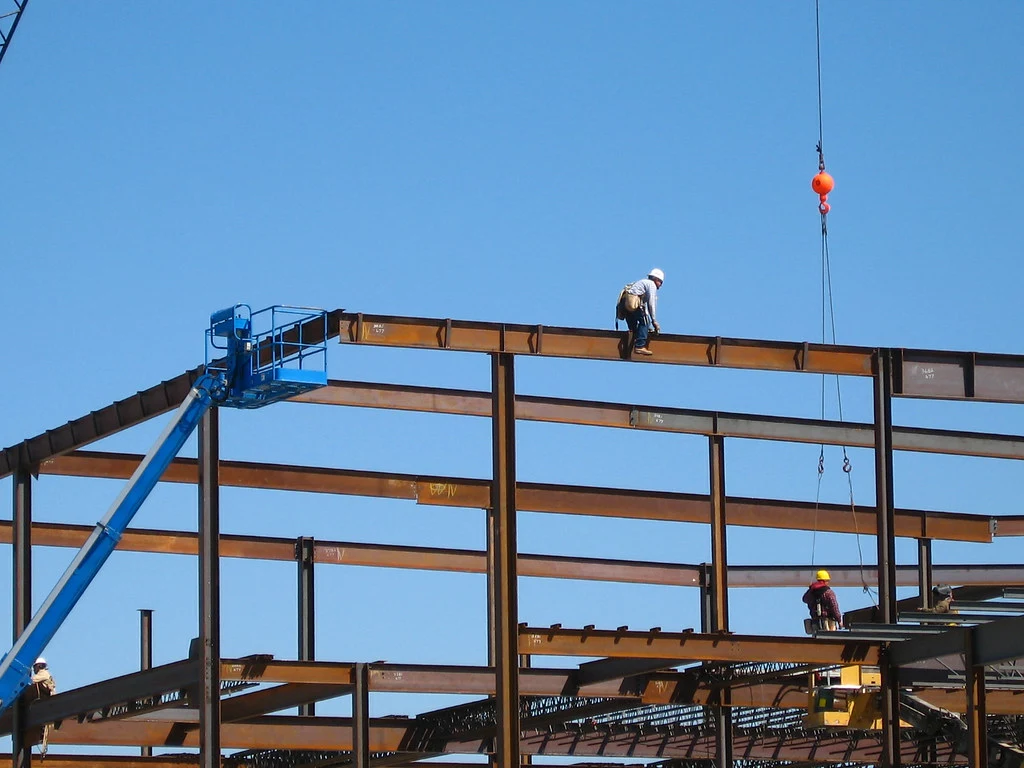Emmanuel Macron’s government has once again put forward the policy of raising the retirement age of French from 62 to 64, and on 19th January, France responded. A general strike was organised across the country with more than one million people taking to the streets – 400,000 in Paris alone.
The Confédération Générale du Travail (CGT), one of France’s five major union federations, organised mass demonstrations and marches across the entire country. Individual unions are planning their own strike actions to maintain the pressure, with the chemical industry calling for a 48-hour strike, starting on 26th January, and a 72-hour strike, starting on 6th February, along with the mining and energy federation also stating that they intend to support the chemical industry.
The protests were not simply about the retirement age. Like many other parts of the world, the French working class has been burdened with rising inflation rates which have severely impacted the cost of living, driving up the prices of petrol, food, electricity. This has been met with the demand that wages should be increased to a living wage, keeping in line with inflation. A six per cent wage increase doesn’t go far enough when inflation is sitting above 10 per cent.
The entire metro system of Paris was brought to a standstill along with other forms of public transport. Schools were closed as teachers voiced their outrage, with over 50 per cent of primary school and middle school teachers walking out. 46.3 per cent of workers at the state-owned national rail company Société Nationale des Chemins de Fer Français (SNCF) joined them.
This is not the first time Macron has tried to change the retirement age. His government attempted to increase it in 2019 but abandoned the attempt soon after COVID-19 hit. This time the response was the largest general strike in 12 years. The CGT held another day of action on January 31st.
Despite this reform being deeply unpopular Macron is still determined go ahead. The “reform” was presented at a news conference during a French-Spanish summit in Barcelona. Macron said: “We must do that reform.” “We will do it with respect, in a spirit of dialogue but also determination and responsibility.” He went on to state, “I trust that the organisers of these demonstrations will ensure these legitimate expressions of opposition can take place without too many inconveniences for our fellow citizens and obviously without excesses, violence or destruction.”
Evidently it has not occurred to Macron that pushing these reforms through during a major cost of living crisis is the actual violence that is being inflicted on the working class. According to a report put out in 2021 by the l’Institut national de la statistique et des études économiques (Insee), 25 per cent of the poorest percentile (those who earn 460 euros – $AUD712 – a month) of male workers die before even reaching the current retirement age of 62, as opposed to only five per cent of the richest percentile (those who earn 5790 euros a month).
This reform has a decidedly targeted class character; the ruling class tremble at the thought of the destruction of property and shrug at the preservation of the quality of life.
Furthermore, as many commentators have pointed out, it is simple cowardice on the side of the French government that they are putting the burden of these reforms onto the working class instead of simply taxing France’s billionaires two per cent to help manage the economy. This comes as no surprise, as any neoliberal government’s allegiance is always towards the wealthy.
First Published in The Guardian






